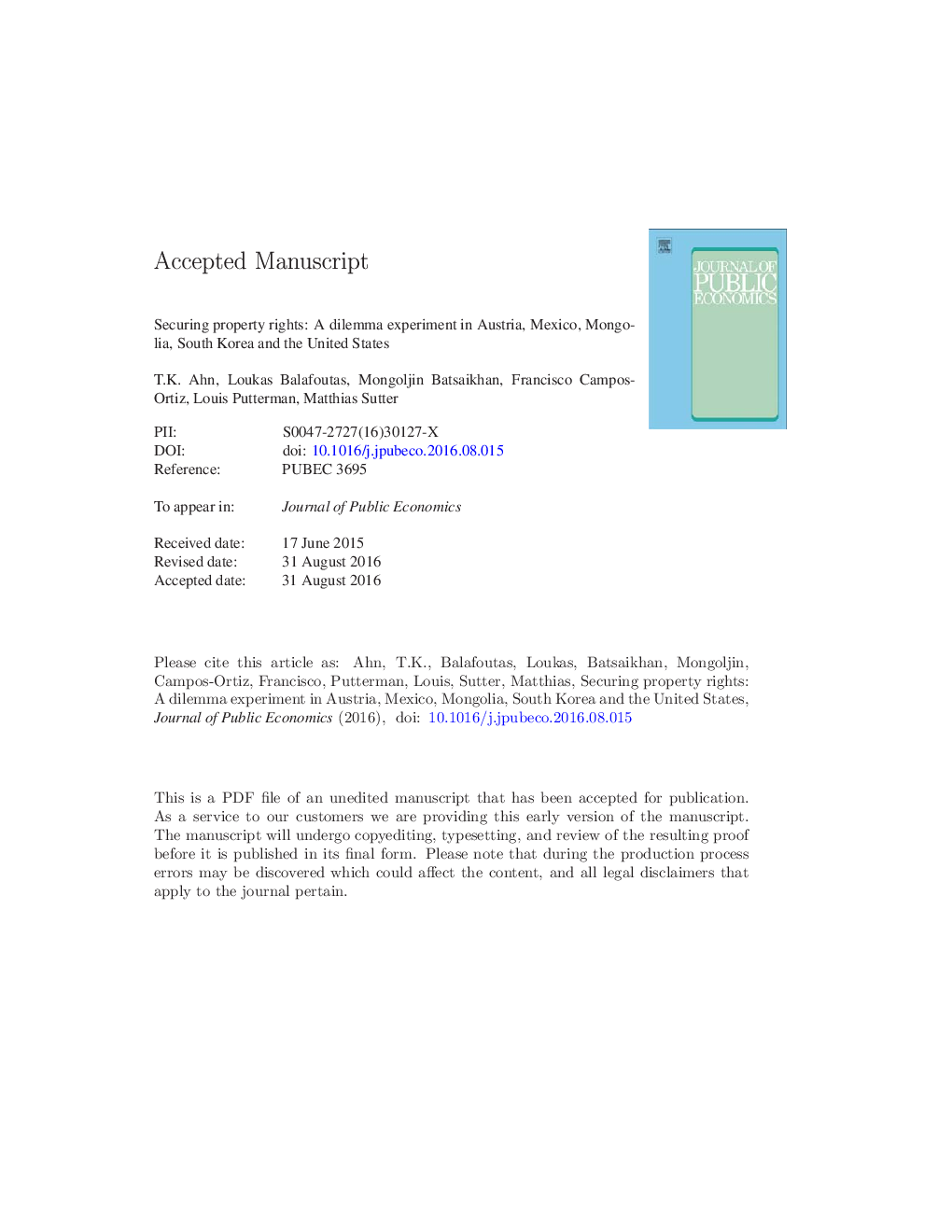| Article ID | Journal | Published Year | Pages | File Type |
|---|---|---|---|---|
| 5101872 | Journal of Public Economics | 2016 | 31 Pages |
Abstract
Secure property rights result from a combination of public enforcement, private protective measures, and voluntary norm-compliance. We conduct a laboratory experiment to study how culture interacts with institutions in shaping individuals' behaviors and group outcomes in a property rights dilemma. The experiment is conducted in five countries: Austria, Mexico, Mongolia, South Korea and the United States. We find that the security of property varies with the experimentally available institutions and country-level indicators such as trust and quality of government. Subjects from countries with higher levels of trust are more likely to abstain initially from theft, devote more resources to production and support funding public protection of property through taxation. Our findings highlight the relevance of cultural and institutional factors, and their interaction, in addressing the collective action problem of safeguarding property rights.
Related Topics
Social Sciences and Humanities
Economics, Econometrics and Finance
Economics and Econometrics
Authors
T.K. Ahn, Loukas Balafoutas, Mongoljin Batsaikhan, Francisco Campos-Ortiz, Louis Putterman, Matthias Sutter,
